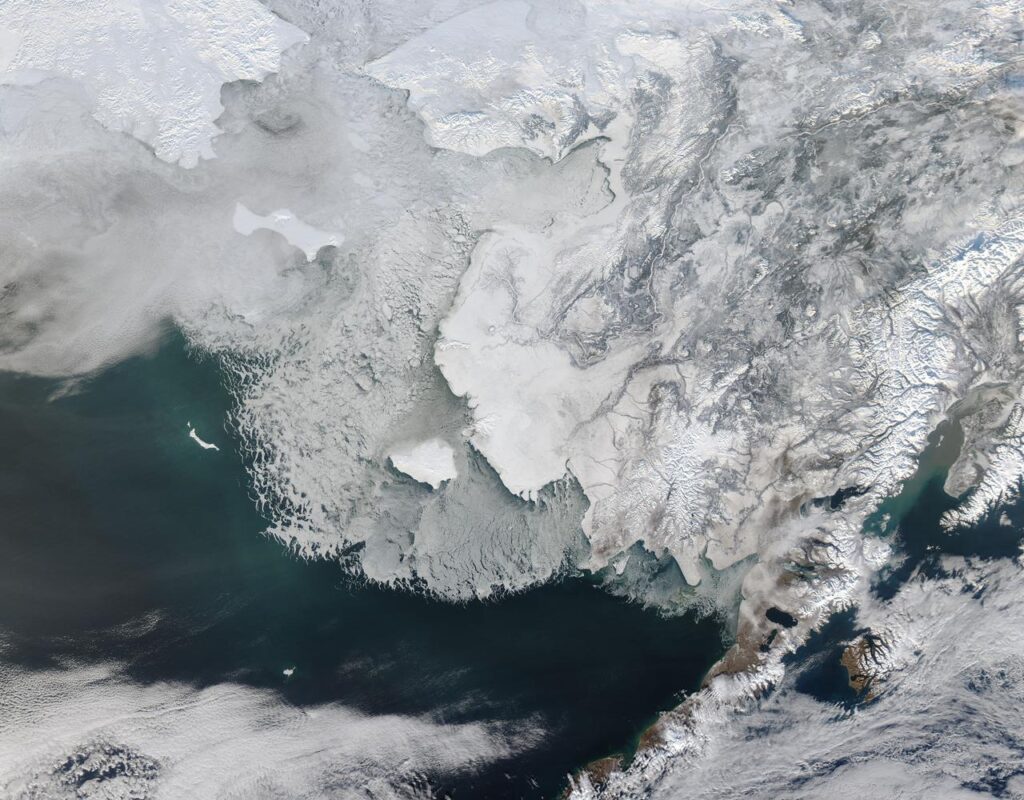
An “ice-free” Arctic summer, generally defined as having a sea-ice extent smaller than 1 million square kilometers (386,100 square miles), may come about 12 years later than previously predicted, according to new research from AGU’s journal Earth’s Future. Credit: NASA Goddard
Featured research
Arctic may experience first ice-free summer later than expected
Some studies predict that the Arctic’s first ice-free summer will be around 2044; however, they fail to consider how sea ice has historically changed on a regional scale. Climate models combined with regional observations find that the Arctic’s first summer without ice will likely occur 12 years later than previously estimated. [Earth’s Future research]
Largest recorded marsquake likely has tectonic origins
Most of Mars’ seismic activity can be traced to meteoroids striking the planet’s surface, but NASA’s InSight mission recorded a major marsquake in an area with no new impact crater. As a result, scientists now suggest that it may be tectonic activity, not a meteoroid, that triggered the marsquake. [Geophysical Research Letters research]
World’s largest water diversion project sees moderate success
To address a water shortage, China has been sending water from the wet south to the dry north in the world’s largest diversions — also one of the most controversial. The effort has some success with surface water recovery but more limited success with groundwater and terrestrial water, a new study finds. [Water Resources Research research]
Surface water can be a better indicator of malaria than rainfall
Current malaria prediction tools use precipitation data to indirectly estimate surface water, where mosquitoes breed. But models using high-resolution surface water data can better mimic how malaria spreads and outperform precipitation-based predictions, a new study finds. [GeoHealth research]
Commitment to Paris Agreement could save thousands of lives in Chile
A growing population and higher vehicle use contribute to air pollution that is above global health guidelines in Santiago, Chile’s capital city. Adherence to the Paris Climate Agreement by 2050 could prevent more than 3,000 premature deaths and 2,590 new asthma cases in Santiago. [JGR Atmospheres research]
Melting glaciers send lead into coastal waters
The amount of lead currently found in glaciated environments is too high to be explained by atmospheric deposition alone, even with the phasing out of leaded gasoline. New experiments find that glacier sediments release more lead into meltwater with warmer temperatures. [JGR Biogeosciences research] [Eos editor’s highlight]
AGU (www.agu.org) is a global community supporting more than half a million advocates and professionals in Earth and space sciences. Through broad and inclusive partnerships, AGU aims to advance discovery and solution science that accelerate knowledge and create solutions that are ethical, unbiased and respectful of communities and their values. Our programs include serving as a scholarly publisher, convening virtual and in-person events and providing career support. We live our values in everything we do, such as our net zero energy renovated building in Washington, D.C. and our Ethics and Equity Center, which fosters a diverse and inclusive geoscience community to ensure responsible conduct.